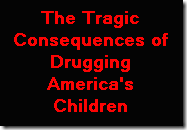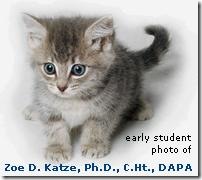| CHILD ABUSE Research, Statistics, GENERAL RESOURCES; ||||| ACCURACY ABOUT ABUSE, a compendium of articles online ||||| APSAC: AMERICAN PROFESSIONAL SOCIETY ON THE ABUSE OF CHILDREN ||||| JIM HOPPER'S CHILD ABUSE INFORMATION WEBSITE, by Jim Hopper, Ph.D. ||||| THE LEADERSHIP COUNCIL, research and articles on Parental Alienation Syndrome (PAS), Parental Alienation theory, False Memory Syndrome, the politics of child abuse, and other issues. ||||| NIS-3 THIRD NATIONAL INCIDENCE STUDY, National Clearinghouse on Child Abuse ||||| PANDORA'S BOX, by Nancy Faulkner, Ph.D.
ADDITIONAL WEBSITES THAT MAY BE OF INTEREST: Australian Domestic & Family Violence Clearinghouse http://www.austdvclearinghouse.unsw.edu.au/ and The Australian Centre for the Study of Sexual Assaulthttp://www.aifs.gov.au/acssa/ ||||| TRAUMA INFORMATION PAGES, by David V. Baldwin, Ph.D. (best scholarly site) CHILD CUSTODY; LITIGATION
||||| UNDERSTANDING THE BATTERER IN VISITATION AND CUSTODY DISPUTES,by R. Lundy Bancroft. ||||| FALSE ALLEGATIONS OF SEX ABUSE IN DIVORCE CASES, by Merrilyn McDonald.
||||| WHEN PARADIGMS COLLIDE: Protecting Battered Parents and Their Children in the Family Court System, by Clare Dalton, 37 Fam. & Conciliation Courts Rev. 273 (1999). ||||| CUSTODIANS OF ABUSE, by Kristen Lombardi. If you're a parent, it's your worst nightmare: finding out that your child is being molested by your spouse. If you seek a divorce as a result, or are already going through one when you make the discovery, you hope that family court will do the right thing: grant you sole legal and physical custody of your child. In fact, you can't even imagine that there could be any other outcome in the custody judgment. But for many parents --in nearly every instance, mothers -- just the opposite occurs: the alleged abusers dont just get unsupervised visitation rights, they get full custody... ||||| MYTHS AND FACTS ABOUT FATHERHOOD, MOTHERHOOD, CUSTODY: What the Research Really Says, ed. by liz PARENTAL ALIENATION SYNDROME;
||||| RICHARD GARDNER: A SELF-MADE MAN, by Judith M. Simon. Richard A. Gardner is one of the most popular child psychiatrists in the country. He has written scores of books, lectured internationally, served as an expert witness in numerous child custody disputes, and is regularly quoted in the press. Soon, his authority will be formally acknowledged in what he has called a companion volume to the DSM-IV...
EXPANDED VERSION OF THE ABOVE ARTICLE: ||||| COMPULSIVE TREE PLANTING SYNDROME, liznotes Around July 8, 1999, Richard A. Gardner, M.D. put up awebpage entitled "MISPERCEPTIONS VERSUS FACTS ABOUT THE CONTRIBUTIONS OF RICHARD A. GARDNER, M.D." Some of his responses to the questions ("misperceptions") which he himself apparently wrote, leave a little to be desired... and so this time liz responds directly.
FALSE MEMORY SYNDROME; RECOVERED MEMORIES ||||| ARE FALSE MEMORY SYNDROME CLAIMS EMPIRICALLY BASED? by Kenneth S. Pope, Ph.D., ABPP, and other recommended articles ||||| FALSE MEMORY SYNDROME FOUNDATION: A REMEDY FOR A NONEXISTENT PROBLEM, by Judith M. Simon. |||||ALTERNATE URL False Memory Sundrome (FMS) purportedly arises from "recovered memory therapy," a theoretical practice said to be capable of creating memories of childhood sexual abuse in psychotherapy patients. The "diagnosis" of FMS was introduced in 1992 by Pamela Freyd... and her husband Peter... after their daughter... privately confronted them with memories of incest perpetrated by her father..." ||||| FALSE MEMORY SYNDROME, by Juliette Cutler Page, and more... ||||| GROUND LOST: The False Memory-Recovered Memory Therapy Debate, by Alan W. Scheflin, Prof. of Law. The recovered memory debate has been the most acrimonious, vicious and hurtful internal controversy in the history of modern psychiatry... the term recovered memory is used exclusively as a pejorative. In fact, by definition, every memory is recovered. Furthermore, there are no known schools of recovered memory, no conferences on how to practice recovered memory therapy, nor are there any textbooks on the topic. The term was a clever rhetorical invention and, as such, it has even fooled many otherwise cautious scientists. ||||| "LOST IN A SHOPPING MALL" -- A Breach of Professional Ethics, by Lynn S. Crook and Martha C. Dean. The "lost in a shopping mall" study has been cited to support claims that psychotherapists can implant memories of false autobiographical information of childhood trauma in their patients. An analysis of the mall study shows that beyond the external misrepresentations, internal scientific methodological errors cast doubt on the validity of the claims that have been attributed to the mall study within scholarly and legal arenas. ||||| TAUBMAN CENTER: RECOVERED MEMORIES PSYCHOLOGY ETHICS ||||| ARE PSYCHOLOGISTS HIDING EVIDENCE? by Paul R. Lees-Haley, Ph.D., and John C. Courtney, Psy.D. "A growing problem... is the unwillingness of some psychologists to disclose their tests and test data to attorneys wishing to depose or cross-examine them." Article lays out a convincing argument against this position. ||||| CONFRONTING THE UNETHICAL FORENSIC COLLEAGUE, by Brodsky and McKinzey. Brodsky, S. L. & McKinzey, R. K., (2002). The Ethical Confrontation of the Unethical Forensic Colleague. Professional Psychology: Research & Practice, 33, 307-309. "In the course of clinical and forensic work, psychologists sometimes discover serious weaknesses in knowledge, performance, or ethics in other psychologists' work. The APA ethical code mandates confronting such a psychologist prior to making a professional complaint. This mandatory confrontation typically is omitted because of a sense of awkwardness or a fear of insulting the other psychologist. Education and training in psychology does not cover this sensitive and important area. In this article, we suggest sample templates for an exchange of letters to meet that ethical requirement and to begin to resolve problem behaviors by colleagues." ||||| CURING THE THERAPEUTIC STATE, by Thomas Szasz. The medicalization of American life. ||||| PSYCHOLOGY ETHICS: Articles, reprints, research, and resources online written or collected by Kenneth S. Pope, Ph.D., and other recommended articles ||||| PSYCHOLOGY ETHICS: Rorschach and Forensics, by J. M. Wood et al. Wood, J. M., Nezworski, M. T., Stejskal, W. J. & McKinzey, R. K., (2001). Problems of the Comprehensive System for the Rorschach in Forensic Settings: Recent Developments. Journal of Forensic Psychology Practice, 1 (3) 89-103. "The Comprehensive System for the Rorschach is currently the subject of heated controversy among psychologists. Much "common knowledge" about the test is either incorrect or in dispute. Psychologists who use the Rorschach in forensic settings can often be successfully challenged by well-informed attorneys and may risk becoming the subject of ethics complaints. This article identifies seven issues that are particularly relevant to use of the Comprehensive System for the Rorschach in forensic psychology." ||||| REEVALUATING THE EVALUATORS: Rethinking the Assumptions of Therapeutic Jurisprudence in the Family Courts ||||| RETALIATION AGAINST PROFESSIONALS WHO REPORT ABUSE, by Katharine Hine, Esq. Since before the time of Freud, professionals who report child abuse, especially child sexual abuse, have been subjected to various forms of retaliation. Although the 1970s produced federal and state legislation providing ostensible immunity to those who report child abuse, strong disincentives to reporting persist and new ones have emerged. ||||| WHAT ARE THE EFFECTS OF CHILD ABUSE, liznotes CHILD ABUSE AND RELIGION;
||||| CIRCUMCISION: A Source of Jewish Pain, by Ronald Goldman. "...Currently, circumcision is not universal among Jews either inside or outside the United States. The Circumcision Resource Center, a nonprofit educational organization, knows of hundreds of Jews in Europe, South America, and in the United States who either have not or would not circumcise a son. Even in Israel some Jews do not circumcise, and there is an organization that publicly opposes circumcision.3 The purpose of this article is to coherently explain a few of the contemporary reasons for the increasing doubts some Jews have about circumcision. Then I will apply Torah law and Jewish values to these reasons..." ||||| "If a woman is made to distrust her most basic instinct to protect her newborn child, what feelings can she ever trust?" "My tiny son and I sobbed our hearts out... After everything I'd worked for, carrying and nurturing Joseph in the womb, having him at home against no small odds, keeping him by my side constantly since birth, nursing him whenever he needed closeness and nourishment -- the circumcision was a horrible violation of all I felt we shared. I cried for days afterward." "I have never heard such screams... Will I ever know what scars this brings to your soul?... What is that new look I see in your eyes? I can see pain, a certain sadness, and a loss of trust."
||||| THE CASE AGAINST CIRCUMCISION, by Paul M. Fleiss, M.D. -- also here. ||||| CIRCUMCISION INFORMATION AND RESOURCE PAGES ||||| THE CIRCUMCISION PROBLEM, by James L. Snyder, M.D., F.A.C.S. ||||| CIRCUMCISION AND STDs, by P. M. Fleiss, F. M. Hodges, and R. S. Van Howe."Circumcision started in America during the masturbation hysteria of the Victorian Era, when a few American doctors circumcised boys to punish them for masturbating. Victorian doctors knew very well that circumcision denudes, desensitizes, and disables the penis. Nevertheless, they were soon claiming that circumcision cured epilepsy, convulsions, paralysis, elephantiasis, tuberculosis, eczema, bed-wetting, hip-joint disease, fecal incontinence, rectal prolapse, wet dreams, hernia, headaches, nervousness, hysteria, poor eyesight, idiocy, mental retardation, and insanity... In fact, no procedure in the history of medicine has been claimed to cure and prevent more diseases than circumcision."
SPECIAL READ:: DAYCARE; EDUCATIONAL AND
||||| THE PROBLEM WITH DAYCARE, by Karl Zinsmeister "There is no easy way, public or private, to buy for individual children the kind of loving concern that has never been for sale." ||||| TELEVISION AND CHILDREN'S MINDS, by Susan R. Johnson, M.D. ||||| PARENTING AND CHILDREN'S EDUCATIONAL ACHIEVEMENT: WHAT WORKS; WHAT DOESN'T, ed. by liz. PORNOGRAPHY ||||| THE CRUEL EDGE, by Prof. Robert Jensen. What's wrong with pornography, and why it's a problem.
||||| NUDIST HALL OF SHAME, by Nikki Craft PSYCHIATRY AND THE
||||| AMERICA'S SCHOOLCHILDREN TREATED LIKE LAB RATS, by John W. Whitehead "In almost every state across the nation, schoolchildren are being subjected to behavioral exams and mental health tests, often without their parents' knowledge or consent... One such program is the Youth Risk Behavior Surveillance System (YRBSS). Currently used in at least 45 states, the YRBSS test takes approximately 35 minutes to complete, with questions on everything from how much television the student watches to thoughts on suicide, sexual activity and drug use. For example, the 2007 middle school questionnaire includes such questions as: "Have you ever seriously thought about killing yourself?" ... "The last time you had sexual intercourse, did you or your partner use a condom?"...[C]ritics of these risk assessment tests insist that they're aimed at pushing antidepressant drugs..." WORTH A LOOK:
If we discovered through "research" that a significant majority of college students who had broken bones in childhood suffered no obvious long-term effects from it, would that then make it okay for adults to sock a kid on occasion and break a few ribs? Child abuse does often cause lasting detrimental effects, but that doesn't mean if there aren't (obviously discernable) lasting effects, it wasn't "abuse"! Some real studies on the effects of child abuse are listed below: Anda RF, Croft JB, Felitti VJ, et al. Adverse childhood experiences and smoking during adolescence and adulthood. JAMA 1999 Nov 3;282(17):1652-8. Anda RF, Felitti VJ, Chapman DP, et al. Abused boys, battered mothers, and male involvement in teen pregnancy. Pediatrics 2001 Feb;107(2):E19. Dietz PM, Spitz AM, Anda RF, et al. Unintended pregnancy among adult women exposed to abuse or household dysfunction during their childhood. JAMA 1999 Oct 13;282(14):1359-64. Dube SR, Anda RF, Felitti VJ, et al. Adverse childhood experiences and personal alcohol abuse as an adult. Addict Behav. In press 2002. Dube SR, Anda RF, Felitti VJ, et al. Childhood Abuse, Household dysfunction, and the risk of attempted suicide throughout the life span. Findings from the Adverse Childhood Experiences Study. JAMA 2001;286:3089-3096. Dube SR, Anda RF, Felitti VJ, et al. Exposure to abuse, neglect and household dysfunction among adults who witnessed intimate partner violence as children: implications for integrated health and social services. Edwards VJ, Anda RF, Nordenberg DF, et al. Bias assessment for child abuse survey: factors affecting probability of response to a survey about childhood abuse. Child Abuse Negl 2001 Feb;25(2):307-12. Edwards VJ, Fivush R, Anda RF, et al. Autobiographical memory disturbances in childhood abuse survivors. In: Freyd JJ, DePrince AP, editors. Trauma and cognitive science: a meeting of minds, science, and human experience. Binghamton (NY): Haworth Press; 2001. Published simultaneously as a single-topic issue of J Aggression Maltreatment Trauma Vol 4(2), No. 8. Felitti VJ, Anda RF, Nordenberg D, et al. Relationship of childhood abuse and household dysfunction to many of the leading causes of death in adults. The Adverse Childhood Experiences (ACE) Study. Am J Prev Med 1998 May;14(4):245-58. Foege WH. Adverse childhood experiences: A public health perspective. Am J Prev Med 1998 May;14(4):354-5. Hillis SD, Anda RF, Felitti VJ, et al. Adverse childhood experiences and sexually transmitted diseases in men and women: a retrospective study. Pediatrics 2000 Jul;106(1):E11. Weiss MJ, Wagner SH. What explains the negative consequences of adverse childhood experiences on adult health? Insights from cognitive and neuroscience research. Am J Prev Med 1998 May;14(4):356-60. |
Common uses of Testosterone
-
In almost all vertebrates, testosterone is the primary male sex hormone
and an anabolic steroid . This means it's a substance that helps to develop
and ...
4 years ago

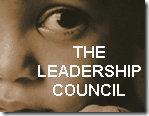
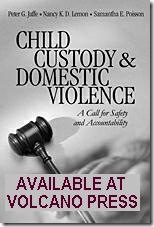
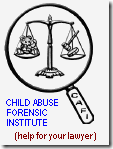






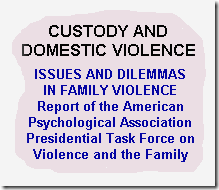





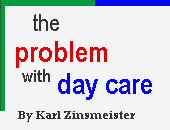
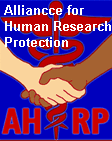



![clip_image020[1] clip_image020[1]](http://angelzfury.files.wordpress.com/2010/04/clip_image0201.gif)
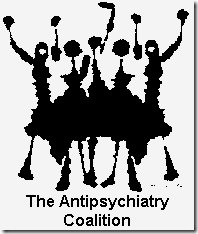
![clip_image021[1] clip_image021[1]](http://angelzfury.files.wordpress.com/2010/04/clip_image0211.gif)


![clip_image014[1] clip_image014[1]](http://angelzfury.files.wordpress.com/2010/04/clip_image0141.gif)
